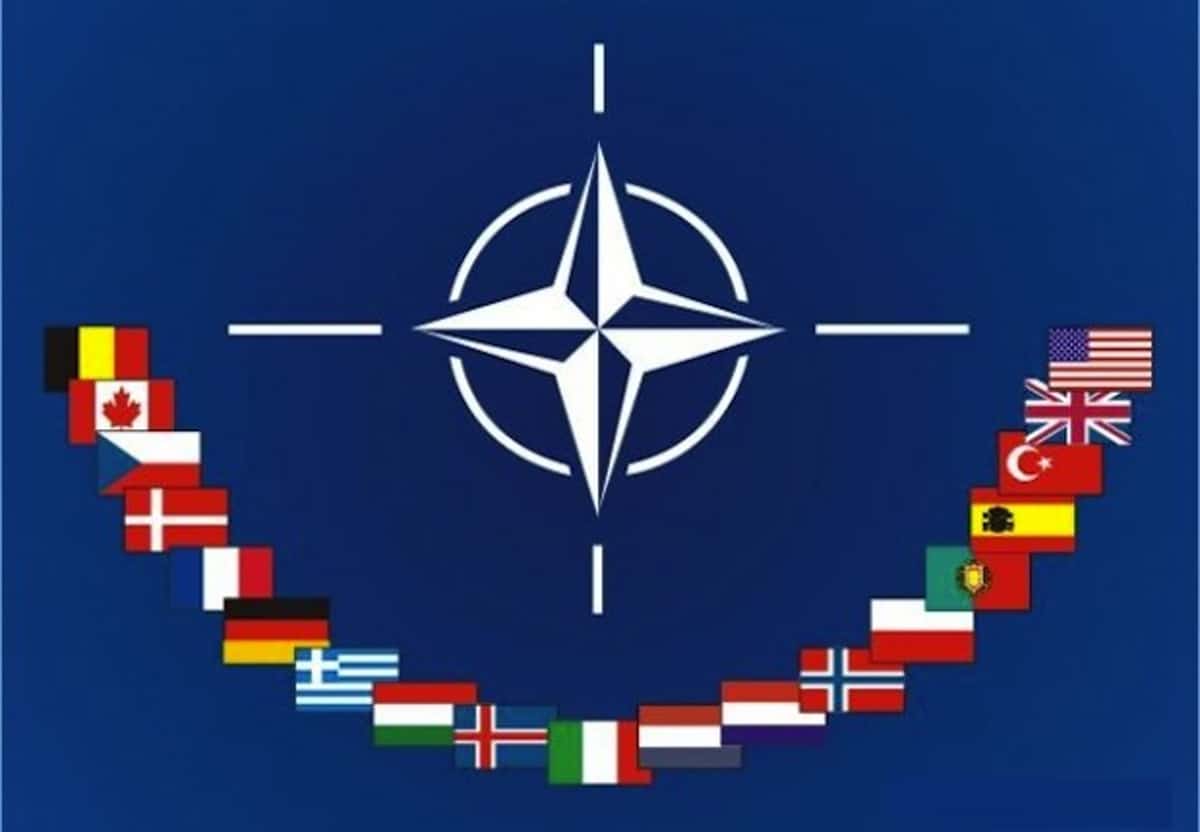India-NATO relations
2021 MAR 26
Mains >
International relations > Strategic Groupings > International groupings

WHY IN NEWS:
- NATO leaders to discuss on formal offer of partnership to India in their next summit meeting in 2021
ABOUT NORTH ATLANTIC TREATY ORGANIZATION
- NATO is a military alliance established by the North Atlantic Treaty (also called the Washington Treaty) in 1949, by the United States, Canada, and several Western European nations to provide collective security against the Soviet Union.
- A key provision of the treaty, the so-called Article 5, states that if one member of the alliance is attacked in Europe or North America, it is to be considered an attack on all members.
- That effectively put Western Europe under the "nuclear umbrella" of the US.
- NATO has only once invoked Article 5, on September 12, 2001 following the 9/11 attacks on the World Trade Center in the US.
- As of now NATO has thirty members
WHAT IS MAJOR NON-NATO ALLY STATUS?
- It is a designation given by the United States government to close allies that have strategic working relationships with the US Armed Forces but are not members of the NATO
- The United States has designated 30 other countries as major non-NATO allies.
- The MNNA status is granted to countries from South Korea to Argentina, depending upon US strategic interests.
- Brazil was the latest countries to be granted this status in 2020
- In 2019 US Senate has passed a legislative provision that brings India at par with America's NATO allies
- While the major non-Nato ally status or its equivalent, does not automatically enjoin a mutual defence pact with the United States (as it does with NATO allies) it still confers a variety of military and financial advantages that otherwise are not obtainable by non-NATO countries
BENEFITS AVAILED BY MAJOR NON-NATO ALLY STATES:
- Access to excess US defence supplies and participation in cooperative defence research and development projects.
- Makes the country eligible for certain joint counter-terrorism initiatives
- Makes a nation eligible for priority delivery of excess defence articles
- Allows the country to use US-provided foreign military financing for commercial leasing of certain defence articles.
- Reciprocal military training
- Expedited export processing of space technology
- It permits firms of a country to bid on certain US government contracts for maintenance, repair or overhaul of Department of Defence (DOD) equipment outside the continental US.
- Makes a nation eligible to buy depleted uranium ammunition.
NEED FOR INDIA TO BE A NATO PARTNER:
- Countering China:
- China’s meteoric rise has dramatically heightened India’s need for closer security relationships with politically reliable, like-minded states
- Increased geo-political significance of Indo-pacific:
- NATO also wants to expand its influence in the Indo-Pacific and Asia-Pacific regions >> to adapt to the changing world landscape
- As a result, NAT O is likely to regard India's unique geographical location and its position in the democratic camp as important.
- Addressing common security challenges
- Emerging challenges such as cyber-attacks, energy security, nuclear proliferation, failing states and piracy compel India to look for additional frameworks >> A framework such as NATO with over six decades of experience in multinational military planning and cooperation >> offers a suitable option
- Peace in Afghanistan:
- NATO’s leadership of the UN-mandated International Security Assistance Force (ISAF) has created much greater interdependence between NATO and India >> because a stable and peaceful Afghan is economically and strategically significant for India
CHALLENGES OF INDIA PARTNERING WITH NATO:
- India’s unwillingness:
- India’s aversion to entanglement in rival geopolitical blocs
- Resistance from many NATO members:
- There are European countries in NATO who still want to develop economic and trade cooperation with China >> So those countries are unwilling to incorporate India into NATO
- Affect Indo-Russia relation:
- If India becomes a NATO partner, it will be a huge disaster for India-Russia relations
- Russia can also take advantage of the opportunity to strengthen its cooperation with Pakistan
- Limited benefits:
- NATO partnerships do not carry the Article 5 guarantee of collective defence against armed attack
- Antagonize China:
- India’s closer relation with NATO will be posed as ant-China move >> it will have repercussions on the part of China
PRACTICE QUESTION
Q. ‘Becoming a NATO partner would be a natural extension of India’s geo-political calculus, although it involves several upsides and few risks’. Critically analyze?
